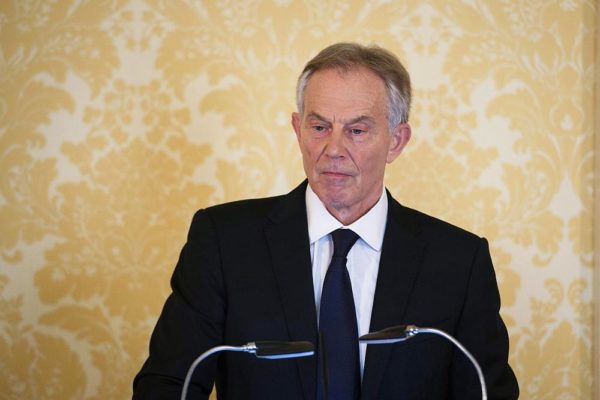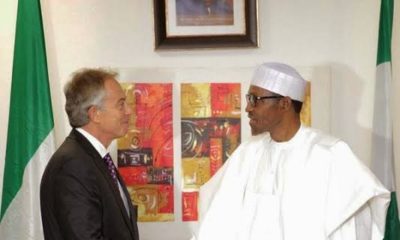BN TV
Chilcot Report: Iraq Inquiry Slams Tony Blair over Legal Basis for War

LONDON, UNITED KINGDOM – JULY 6: Former Prime Minister, Tony Blair speaks during a press conference at Admiralty House, where responding to the Chilcot report.
A British inquiry into the Iraq war strongly criticised former Prime Minister Tony Blair and his government on Wednesday for joining the U.S.-led invasion without a satisfactory legal basis or proper planning.
Blair responded that he had taken the decision to go to war in Iraq “in good faith”, that he still believed it was better to remove Iraqi dictator Saddam Hussein, and that he did not see that action as the cause of terrorism today, in the Middle East or elsewhere.
The long-awaited inquiry report stopped short of saying military action was illegal, a stance that is certain to disappoint Blair’s many critics.
“We have, however, concluded that the circumstances in which it was decided, there was a legal basis for military action were far from satisfactory,” said John Chilcot, the inquiry’s chairman, in a speech presenting his findings.
Blair argued the report should exonerate him from accusations of lying.
“The report should lay to rest allegations of bad faith, lies or deceit,” he said in a statement.
“Whether people agree or disagree with my decision to take military action against Saddam Hussein; I took it in good faith and in what I believed to be the best interests of the country.”
Relatives of some of the British soldiers who died in Iraq said they would study the report to examine if there was a legal case to pursue against those responsible.
The Chilcot report said there was no imminent threat from Saddam in March 2003, and the chaos in Iraq and the region which followed should also have been foreseen.
The invasion and subsequent instability in Iraq had, by 2009, resulted in the deaths of at least 150,000 Iraqis, mostly civilians, and displaced more than a million.
The report said Britain had joined the invasion without exhausting peaceful options, that it had underestimated the consequences of the invasion, and that the planning was wholly inadequate.
Published seven years after the inquiry was set up, the report runs to 2.6 million words – about three times the length of the Bible – and includes details of exchanges Blair had with then U.S. President George W. Bush over the invasion.
“It is now clear that policy on Iraq was made on the basis of flawed intelligence and assessments. They were not challenged and they should have been,” Chilcot said.
He also said that Blair’s government’s judgments about the threat posed by Iraq’s weapons of mass destruction were “presented with unjustified certainty”.
Iraq remains in chaos to this day. Islamic State controls large areas of the country and 250 people died on Saturday in Baghdad’s worst car bombing since the U.S.-led coalition toppled dictator Saddam Hussein.
The inquiry rejected Blair’s view that Iraq’s post-invasion problems could not have been known in advance.
The inquiry’s purpose was for the British government to learn lessons from the invasion and occupation that followed, in which 179 British soldiers died.
Chilcot outlined a catalogue of failures made in the run-up to and aftermath of the war.
He said days before the invasion, Blair had been asked by the government’s top lawyer to confirm Iraq had committed breaches of a United Nations Security Council resolution, which would justify war.
Blair said such breaches had been committed but Chilcot said: “The precise basis on which Blair made that decision is not clear.”
He also said Blair changed his case for war from focusing on Iraq’s alleged “vast stocks” of illegal weapons to Saddam having the intent to obtain such weapons and being in breach of UN resolutions.
“That was not, however, the explanation for military action he had given before the conflict,” Chilcot said.
After the publication of the report, Prime Minister David Cameron said that Britain’s relationship with the U.S. is vital for national security.
Opposition Labour leader Jeremy Corbyn said Britain needed to have a more open and independent relationship with the United States after the report showed Britain joined the war without satisfactory legal basis or proper planning.
“I don’t believe the U.S. is always right about everything but I do believe our partnership with the U.S. is vital for our national security,” Cameron told parliament. “They are always our best partner and we should work with them.”
Cameron also said that while the invasion of Iraq had created space for Al Qaeda, it was important to remember that violent Islamist extremism began long before the Iraq War.
Photo Credit: Stefan Rousseau – WPA Pool/Getty Images
























